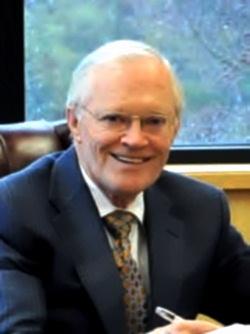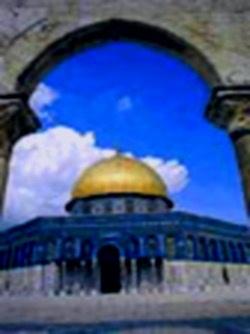Questions and Answers
Question: If the gate is narrow and the way difficult, as Jesus Christ stated in Matthew 7:13–14, then how could His yoke be easy and His burden light? (Matthew 11:30) Please explain this apparent contradiction.
Answer: At first glance, this may appear to be a contradiction, but in fact it is not. To answer your question we need to understand each scripture, beginning with Matthew 7:13–14.
In this scripture, Jesus contrasted two ways of life. He said: “Enter by the narrow gate; for wide is the gate and broad is the way that leads to destruction, and there are many who go in by it. Because narrow is the gate and difficult is the way which leads to life, and there are few who find it” (Matthew 7:13–14). The word “narrow” in the New King James Version; is translated from a Greek word which signifies being “pressed” or hemmed in by large rocks within a gorge. The Greek word rendered as “difficult” carries the meaning of “narrow” or “confined” (An Expository Dictionary of Biblical Words, ed. Vine, 1985).
God’s way is not the natural way that sinning humanity would choose or find most comfortable. Human nature seeks, and remains in, its own selfish comfort zone. It subtly resents and rebels against God’s way and His Laws—the Ten Commandments (Romans 8:7). So deceitful is the heart of man (Jeremiah 17:9), that many think that they can believe in Christ and continue in a sinful lifestyle. Jesus therefore admonished all of His followers, “Strive to enter through the narrow gate…” (Luke 13:24). The Greek word for “strive” is agonizomai which means “struggle” or, literally, “to agonize” (The Companion Bible). When rendered metaphorically as “fight,” as in 1 Timothy 6:12, it signifies to “fight and contend with all perseverance against temptation and opposition.”
Human nature is naturally inclined toward selfishness and disobedience to God’s holy and righteous laws. Without a deep heartfelt repentance of sin, and a fight against one’s human nature, many simply will not be able to find the door into God’s Kingdom! The struggle for every true Christian is to repent of past sins and become God-willed instead of self-willed! The vast majority of humanity does not want to go down that straight and narrow path—choosing rather the easy and broad way. Some will prophesy in Christ’s name, cast out demons and do many wonders, yet to no avail (Matthew 7:21–23). Why? Because they continue to “practice lawlessness” (v. 23). But for those who do choose to repent and forsake lawlessness, Jesus will help them enter the narrow path.
Now, notice the second scripture in question. Jesus said: “Come to me, all you who labor and are heavy laden, and I will give you rest. Take My yoke upon you and learn from Me, for I am gentle and lowly in heart, and you will find rest for your souls. For My yoke is easy and My burden is light” (Matthew 11:28–30). The Apostle John elaborates: “For this is the love of God, that we keep His commandments. And His commandments are not burdensome” (1 John 5:3).
God’s way is indeed a blessed way of freedom from sin and its consequences, which end in death (Romans 6:23). As Christians, we are to repent and “lay aside every weight, and the sin which so easily ensnares us”—having faith in Jesus Christ to help us through all our problems and trials—“casting all your care upon Him, for He cares for you” (Hebrews 12:1–4; 1 Peter 5:7). It is the weight of sin that ensnares and loads us down! Through repentance and faith in Jesus Christ, we can be forgiven and released from sin’s vise-like grip. Jesus was speaking of two ways of life—slavery to sin, shackled by guilt leading to eternal death versus joyful obedience to God’s way and the receiving of abundant blessings leading to eternal life.
The two scriptures in question are thus clearly not contradictory but are sequential in nature. One scripture encourages an action—the choice of obedience to God’s law. The other scripture describes the results of that choice—an easy yoke and light burden. Truly, anyone who has already made that choice realizes the blessings it affords.






